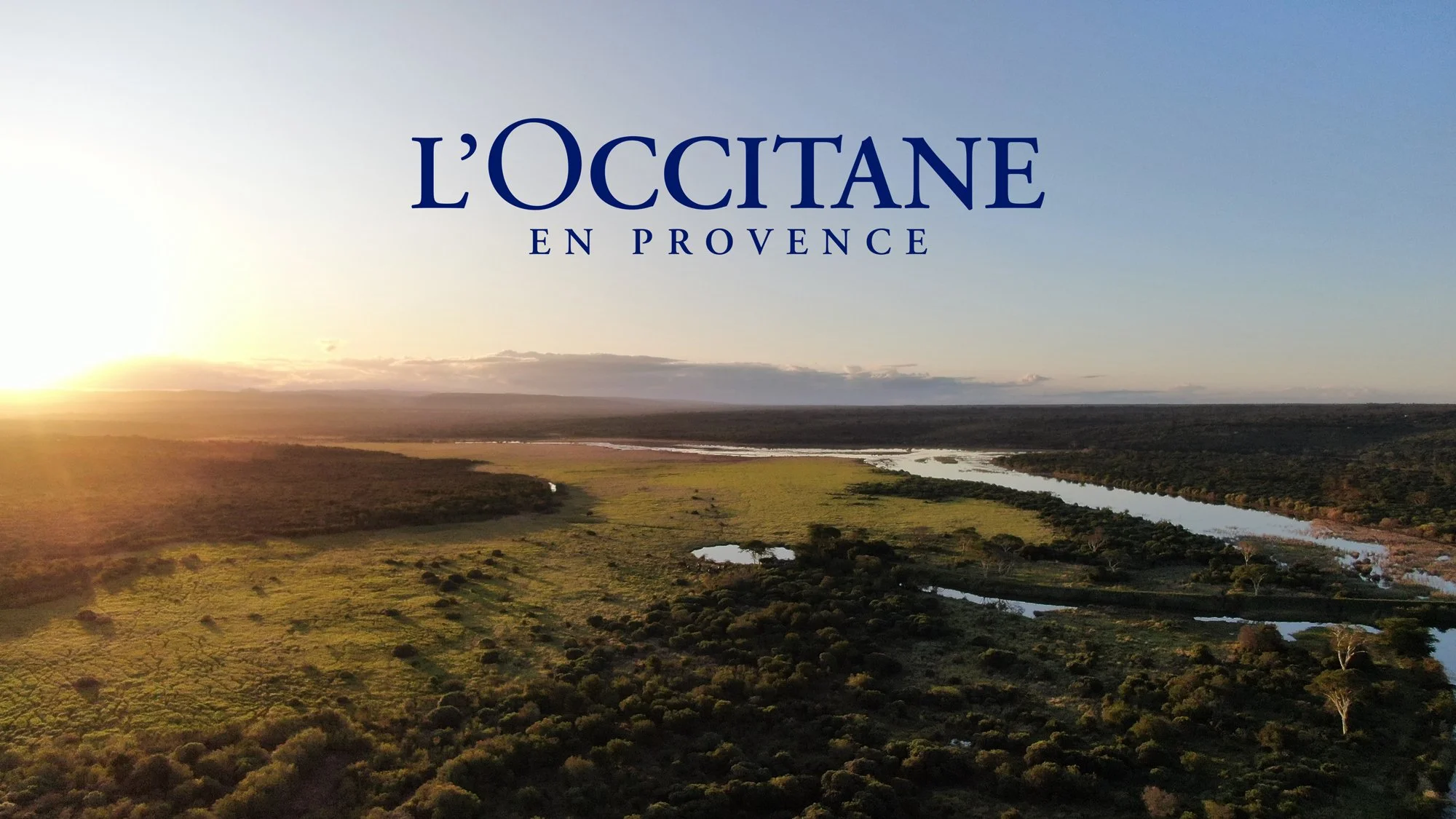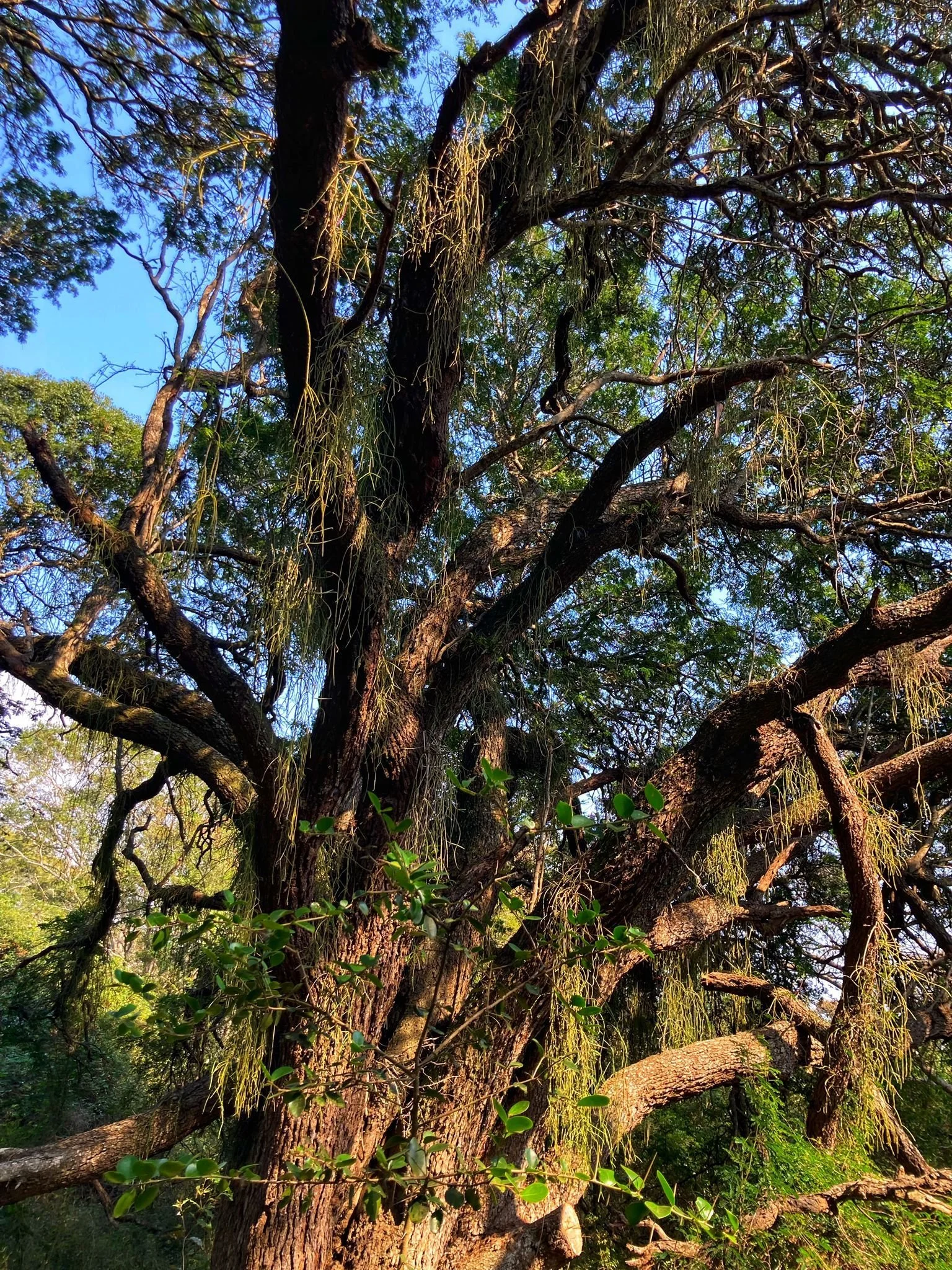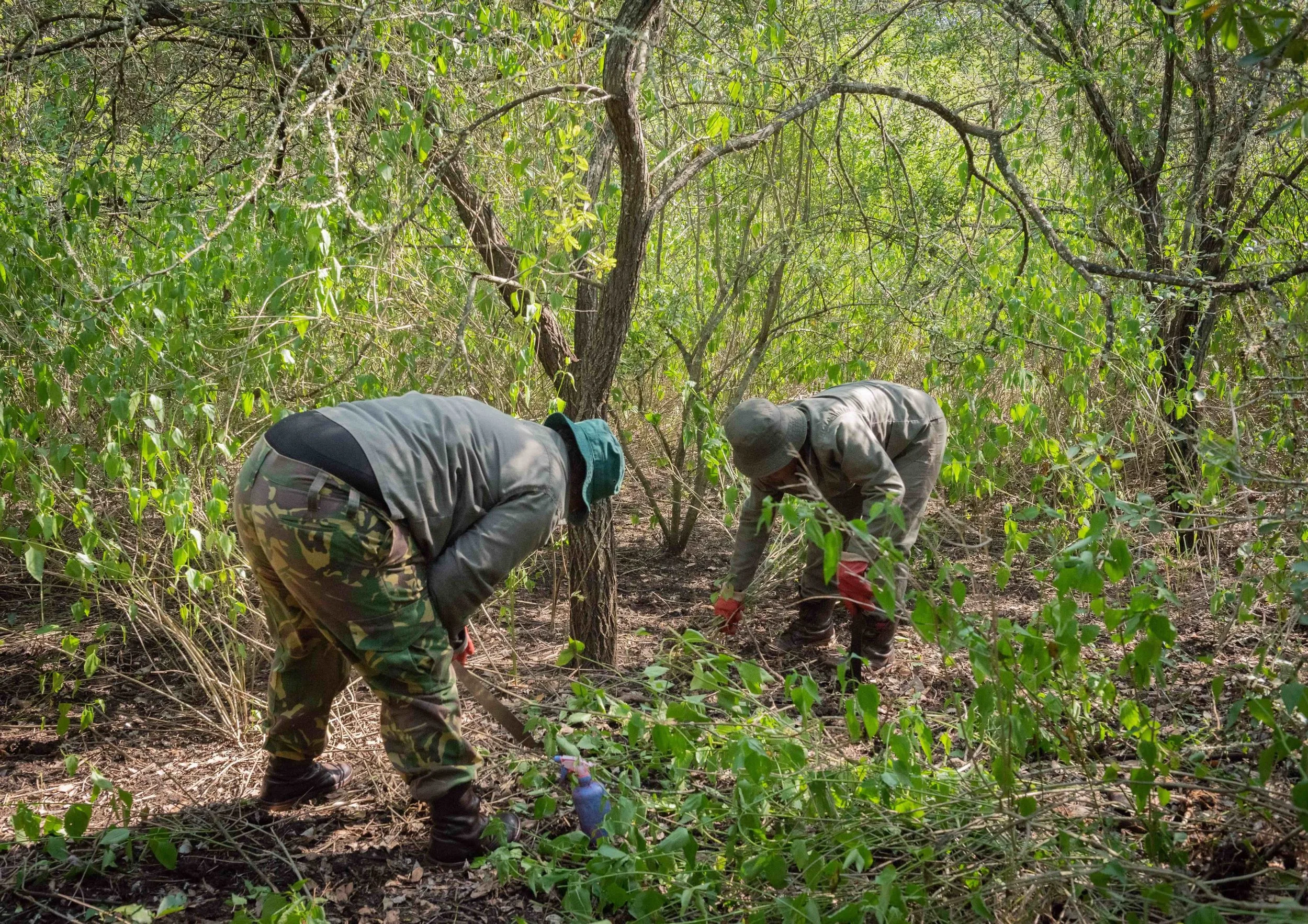RESTORING SAND FOREST WITH L'OCCITANE
We are thrilled to announce our new partnership with natural cosmetics brand, L’Occitane, marked by a grant of 132,900 ZAR (approx. €8,000) from L’Occitane South Africa to support the restoration of endangered sand forest and its unique biodiversity at Wild Tomorrow Fund’s Greater Ukuwela Nature Reserve in KwaZulu-Natal, South Africa. Read more about L’Occitane’s commitment to protecting & restoring biodiversity at our reserve in our latest story below.
Sunset over Wild Tomorrow Fund’s Greater Ukuwela Nature Reserve, South Africa.
We are thrilled to announce a grant of R132,900 from L’Occitane South Africa to support Wild Tomorrow Fund’s first active forest restoration project at the Greater Ukuwela Nature Reserve (Ukuwela) in South Africa. This generous grant, funded and supported by both the L’Occitane Foundation in France and the local L’Occitane team in South Africa, enables us to begin our project restoring endangered sand forest at the reserve.
The giant Lebombo wattle. This beautiful “mother tree”, decorated with native orchids and vines, and central to the sand forest at the Greater Ukuwela Nature Reserve, is estimated to be 500 years old.
Healthy forest ecosystems are home to 80% of the Earth’s terrestrial animals and plants, making them incredibly important habitats for our planet’s remaining biodiversity. It is the most endangered forests that - by virtue of their disappearing habitat - are places of the last refuge for many rare and threatened species. That’s why conserving and restoring the endangered Sand Forest is such an important project for the protection of threatened biodiversity in South Africa.
At Wild Tomorrow Fund’s Ukuwela reserve, we are excited to launch our sand forest restoration project thanks to the support of L’Occitane. And this is no ordinary tree-planting project. The sand forest is considered amongst the highest conservation priority ecosystems on the planet due to its richness of biodiversity and the high number of species found only in the forest (endemism).
Today, an estimated 3,540 hectares (8750 acres) of sand forest remain in South Africa (found only in KwaZulu-Natal). Over 70% of this forest was lost in the last 20 years to land clearing, over-harvesting, and lack of enforced protection. Wild Tomorrow Fund’s Greater Ukuwela Nature Reserve, officially declared as a protected area in June 2021, added an additional 10 hectares (25 acres) of Sand Forest under legal protection in South Africa. Our project will restore 4 hectares of this endangered forest by planting 10,000 trees over 3 years.
L’Occitane has so far protected 1,254 varieties of plants around the world, set up 1150 beehives in France and abroad, restored orchards in Poland, protected endangered plant species in Hong Kong, and supported the socio-economic development of 50,883 women in Burkina Faso. We are excited that L’Occitane’s commitment to protecting & restoring biodiversity globally now includes the amazing sand forest of KwaZulu-Natal, South Africa!
The first step in the project is where our Green Mambas team will begin, our team of 14 Zulu community women. It will take one week of work by the Green Mambas to clear the forest area of alien plants and choking creepers, to prepare for tree planting. They will also help to collect native seeds for planting in our new nursery until they’re sapling sized and ready for planting in a few years. This year, afforestation work (aka tree-planting) will begin after the rainy season in October- and we can’t wait to get started. L’Occitane’s grant funds, in addition to the work by the Green Mambas, the purchase of 2,500 sand forest trees, which the corporate team from Johannesburg, Durban, and Cape Town will help to plant in person this October.
The Green Mambas hard at work restoring the Ukuwela Nature Reserve, removing invasive alien plants manually. Photograph by Wild Tomorrow Fund Ambassador, Barbara Engel.
One of the tree species to be planted will be a new tree species to be reintroduced to our reserve (native but not currently present), called the Pepper bark tree (Warburgia salutaris). This is an endangered tree that is unsustainably de-barked for its use in traditional medicine. It’s also a favorite of the critically endangered black rhino.
A shy Suni antelope at Wild Tomorrow Fund’s Greater Ukuwela Nature Reserve. The main threat to the survival of this chihuahua-sized antelope is poaching and the loss of its habitat, the sand forest.
The mother tree of the sand forest is the giant Lebombo Wattle, which towers above the forest canopy. Many rare birds are found in its branches including Rudd’s Apalis (Apalis ruddi), Neergaard’s Sunbird (Cinnyris neergaardi), Eastern Nicator (Nicator gularis), plus over 111 butterfly species, and various threatened mammals including the Four-toed elephant shrew, the Tonga red squirrel, and dwarf Suni antelope. This forest, if further fragmented and depleted, could spell extinction for many species, including those not yet discovered.
Orange-breasted Bushshrike (Telophorus sulfureopectus): one of 413 bird species so far confirmed at the Ukuwela Reserve. An increase in the abundance of birds is one indicator of the health of the sand forest. Photo by 2019 Volunteer Photographer and Wild Tomorrow Fund Ambassador, Nadja Rutkowski, during a bird banding survey.
Another tree to be planted which highlights the interconnection of the sand forest and biodiversity is the Resin tree (Ozoroa obovatai). Its leaves are eaten by Nyala and other browsers, while the bark is chewed and eaten by elephants, and its fruits by birds including the wonderful hornbill. The nectar on its green fruits is food for forest ants. This one tree is connected to many other animals and insects in the forest. Without forests, many species cannot exist, and without these special animals unique to the forest, it cannot function to cycle fresh air and water on which local communities depend for health and well-being.
“The L’Occitane Group’s beauty and well-being products take inspiration from nature. Biodiversity and its benefits are fundamental to human well-being and a healthy planet. This is why we have taken action for more than 40 years to preserve and restore nature and why we are striving to achieve a positive impact. Our planet now faces a global biodiversity extinction crisis never witnessed before by humankind. Our company and whole industry are taking action against the extinction of species and degradation of ecosystems that provide resources and services we rely on. We are at a turning point in tackling biodiversity loss.”
“Thank you to L’Occitane group for respecting and protecting biodiversity from the lavender fields of Provence France threatened by the impacts of climate change, and now to the endangered sand forest of KwaZulu-Natal. It’s an extraordinary example of a company going beyond sustainability to actively restoring nature while empowering women”, said Wild Tomorrow Fund’s co-founder Wendy Hapgood.
You can help too, by donating to plant a tree in our sand forest. If you’re in South Africa, you can help by purchasing one of L’Occitane South Africa’s commitment scarves: www.za.loccitane.com/collections/commitment-scarf-wraps
100% of the proceeds of these scarves, will be donated to L’Occitane’s two local initiatives, focused on caring for sight & the planting of sand forest trees for our project.
#RespectingBiodiversity #GenerationRestoration #restore #rewild #Loccitane #WeActLocally #forestrestoration #regeneration





